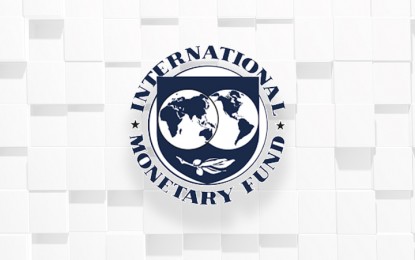
MANILA – Two economists in the academe agreed with the International Monetary Fund’s (IMF) optimistic 2024 forecast on the Philippine economy with fiscal policy-making, geopolitics and environmental factors playing a major role in deciding the country’s economic direction next year.
In a report following its 2023 Article IV consultation with the Philippines, the IMF Executive Board said “real gross domestic product (GDP) growth is expected to bounce back in the second half of 2023 and reach 6.0 percent in 2024, supported by acceleration in public investment and improved external demand for the Philippines’ exports.”
In an interview on Tuesday, Carlos Manapat, chair at the economics department of the University of Santo Tomas (UST), said the global lender’s optimism is based on expectations of more private sector investments, greater government spending and increased exports next year.
“If the IMF’s expectations come true, then its growth forecast for the Philippines is attainable,” he said.
Manapat said while the Philippines is likely to remain a net importer in the short term, aggressively pushing the country’s export sector forward will positively affect its economic numbers.
He said the IMF’s apparent bullishness over the Philippine economy may stem partly from renewed confidence in the country’s political leadership, among other developments that it deems positive.
“It could be their way of building up the investment climate… to improve our credit standing to set the stage for investment,” he added.
For his part, Roberto Galang, dean at Ateneo de Manila’s John Gokongwei School of Management (JGSOM), cited three main “tailwinds” for the government to look into in 2024 if it wants to capitalize on the country's long-term potential.
These tailwinds, he said, are effects of the El Niño phenomenon on agriculture, the impact of right-of-way issues on infrastructure targets, and the repercussions of recent geopolitical, and peace and order developments.
He called for preparations in anticipation of a prolonged dry spell that can “lead to water shortages that impact our agricultural output, water supply, and push down consumer spending.”
Galang also urged government policymakers to clarify right-of-way rules so that infrastructure projects will not continue to be stalled.
“Even the ownership of the subterranean rights for the Metro Manila subway project remains unclear. Many of our large infra(structure) projects: MRTs (Metro Rail Transit), skyway, expressways take decades longer to complete because of constant right-of-way issues,” he lamented.
In its report released Dec. 15, the IMF also said “the (Philippine) government’s infrastructure program, opening up of sectors to greater foreign investment, and private sector participation through PPP (public-private partnership) modalities will gradually crowd in private investment and help realize a growth potential of about 6–6.5 percent over the medium term.”
Moreover, Galang said how the government navigates geopolitical issues, such as the territorial dispute in the West Philippine Sea, will have a huge bearing on the attainment of economic growth targets.
“Thankfully, this comes at a time when local peace and order has improved, especially with the peace agreements. We are hopeful that… peace across the country will hold, leading to more opportunities in tourism, agriculture and infra(structure) development,” he added. (PNA)
